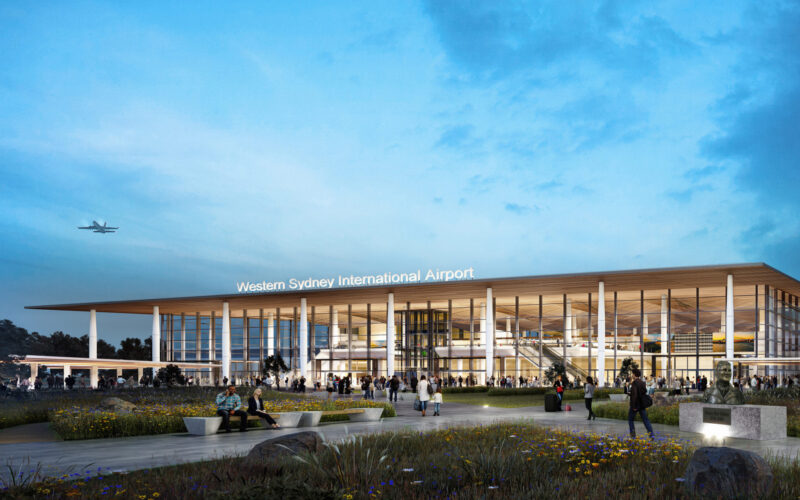The first aircraft has completed a safe test takeoff and landing at Western Sydney Airport (WSI), marking a significant milestone for the airport, which has been under construction for six years.
The plane, a small Piper PA-30 Twin Comanche aircraft carrying one pilot, successfully completed a series of landing and takeoff runs on October 2, 2024. The tests were conducted to check the airport’s runway lighting system ahead of the introduction of larger passenger planes in 2026.
“We are moving from a construction phase to a testing and commissioning phase,” Simon Hickey, Western Sydney Airport CEO said to 7NEWS Australia on October 2, 2024.
Why the need for another airport?
In 2016, the then-Australian Minister for Urban Infrastructure approved development for a new airport for Western Sydney, now known as the Western Sydney International (Nancy-Bird Walton) Airport.
According to a report published by the Australian government in August 2023, demand for aviation services in Sydney is set to double over the next 20 years. The new airport “would cater for ongoing growth in demand for air travel, particularly in the rapidly expanding Western Sydney region”, the report continued.
WSI will be a 24-hour international airport and covers almost 1,800 hectares of undulating terrain, which is around twice the area of Sydney (Kingsford-Smith) Airport (SYD). WSI is located in the Western City District, specifically within the suburbs of Luddenham/Badgerys Creek, New South Wales.
Once fully operational, the airport’s main terminal, apron, and infrastructure will be ready to serve up to 10 million passengers and around 81,000 flights each year.
Construction of WSI began on September 24, 2018, as a part of an AUD$5.3 billion (around US$3.63 billion) project expected to be completed within 10 years. The Australian government plans to have WSI ready for scheduled flight operations by the end of 2026.

